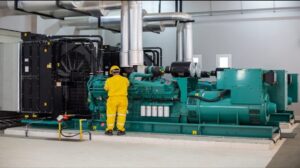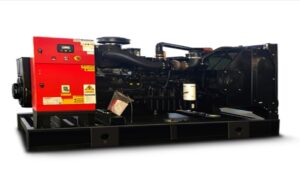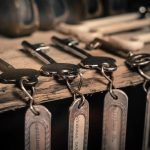When power failures occur, backup generators provide crucial electricity for homes and businesses in Canada. As one of the world’s largest generator markets, there are many options to choose from when shopping for reliable standby or portable generator sizes for a wide range of needs across the country.
In this article, we shall explore these choices, and examine home generator systems across Canada. Thereafter, we shall consider tailored power solutions for homes and the customization of generators for businesses.
Exploring Generator Choices
Purchasing a generator in Canada is an important decision that requires some research to find the right model. There are several factors to consider when exploring generator options. Some of these factors include the following:
Capacity Needs
Determine the wattage and voltage needs for running essential appliances and electronics during a power outage. This will help narrow down the size and fuel type required. Let’s quickly look at some examples:
- Home Use: A smaller, portable gas-powered generator around 3,500-5,000 watts can handle household necessities. Larger standby generators of over 10,000 watts can work for whole homes.
- Commercial: More heavy-duty diesel or gas generators from 10,000-150,000+ watts are required for businesses.
Fuel Type
The use of gasoline, diesel, propane, natural gas, and renewable sources each hasitspros and cons to weigh.
- Gasoline: Gasoline is a portable and easy to obtain fuel for modest power needs. It requires maintenance and proper storage.
- Propane: Propane has cleaner burning and a more stable shelf life than gasoline. It is best for larger standby units and needs big external tanks.
- Diesel: Diesel gensets are very durable engines ideal for whole home backup. However, diesel is more expensive but has long runtimes per tank.
Weather Protection
Look for cold weather packages if installing a permanently mounted standby generator in colder climates. The ideal protection should include the following:
- Wind Protection: Wind-resistant metal or composite enclosures that will protect against storm damage. They will also have sound dampening effect, to cut down on the noise.
- External Protection: Weatherproof, mounted enclosures that will shield generators from snow, rain, etc. making outdoor installation possible.
- Insulated Fuel Lines: Having insulated fuel lines in your generator will prevent fuel-freezing.
In addition to the above, you will require battery as well as oil and block heaters. This will ensure reliable starting even when temperatures are down to -40°C.
Choosing Home Generator Systems for the Right Canadian Location
Homeowners across Canada have options when it comes to purchasing a generator system to provide backup or off-grid power. However, the needs and climate conditions vary in different regions. Below are some examples of climate conditions to expect:
West Coast Climate Considerations
The temperate west coast sees abundant rainfall but rare extreme cold or heat. Sound-dampened and weatherproof metal enclosures work well in these wet climates. Diesel, natural gas, or propane systems are fuel-flexible and allow long runtimes without refuelling. On the other hand, gasoline requires more frequent filling. But note that permanent systems may need permits and inspections before operation in some municipalities.
Prairie Backup Power Needs
Frigid winters and hot summers mean reliable home backup is essential on the prairies. Look for extra insulation, battery heaters, synthetic oil, and low temperature start kits for winter. In summer, size the generator such that it’s able to handle central air conditioning and ensure that it meets other basic requirements–something around 15,000 watts is recommended. The abundance of natural gas supply makes it a convenient fuel for larger whole-home systems.
Off-Grid Capabilities
Rugged, rural, and northern regions benefit from generators with robust off-grid power generation. The long run times between refuelling make diesel and large propane tanks preferable in these areas. Also, combining solar, wind, or hydropower with generators in Canada maximizes its self-sufficiency. Internet-connected generators allow for remote monitoring and control – a feature critical for remote sites.
Tailoring Power Solutions for Home Needs
Homeowners in Canada can find generator systems tailored to meet their specific electrical needs, climate conditions, and budgets. However, it is professional consultation that will help you ensure the right fit. They will achieve this by doing some of the following:
Calculate Electrical Load
An electrical expert can conduct a load calculation on your facility to determine the necessary generator wattage and voltage to power your essential circuits.
- Prioritize Circuits: Focus on supplying backup power to critical loads like refrigerators, freezers, heating/cooling systems, medical devices, and key lights.
- Essential Appliances: Add up wattages of must-run appliances and equipment during an outage. Leave room for future needs.
- Voltage Match: Choose between standard 120V and 240V output or large 480V, 3-phase models that match house wiring.
Evaluate Fuel Options
Compare characteristics of diesel, natural gas, propane, and gasoline when selecting a fuel supply. Some of the options to choose from include:
- Gasoline: Easy to obtain fuel but requires rotating supply to avoid stale fuel.
- Diesel: High energy density provides very long runtimes and has reliable engines suitable for backup of the whole house.
- Propane Tanks: Large external tanks enable autonomous extended operation, long shelf life but high upfront costs.
Weatherproofing Essentials
Protection from extreme Canadian weather prolongs generator life. This will involve having the following:
- Cold Weather Packages: Block heaters, battery pads, synthetic oil, and other features enable reliable winter starting.
- All-Weather Enclosures: Mounted shelters allow for outdoor generator installation while shielding from precipitation and wind.
Sound attenuation is a natural by-product of efficient weather proofing. The durable metals used along with the noise-dampening materials, insulates, and abates noise pollution for residential areas.
Customizing Generators for Businesses
Companies in Canada have unique generator needs depending on their sector, scale, and operations. Customized commercial generators provide reliable backup power. Doing this requires careful considering which will include:
Power Requirements Analysis
Professionals willconduct audits of current systems to determine ideal generator specifications. This will include looking at:
- Load Demand: Measure peak kW loads from facilities and processes requiring uninterrupted operation during outages.
- Voltage and Phase: Match generator output of 120/240V single phase, 208V 3-phase, 480V 3-phase or higher voltage configurations.
- Runtime Needs: Factor in critical redundancies and autonomies. Large fuel tanks, renewable inputs extend runtimes.
Sourcing Durable Systems
Industrial-grade generator systems can withstand heavy continuous use. They will usually have some of the following basic features:
- Commercial Engines: Diesel, natural gas, and propane engines provide reliable prime and standby power output.
- Weatherproof Enclosures: Protect against dust, moisture, and other weather extremes.
- Noise Control: Sound enclosures, exhaust silencers, and vibration isolators reduce noise pollution.
Monitoring and Maintenance
Regardless of the system that is chosen, whether for home or commercial use, proactive servicing and remote monitoring will ensure optimal uptime and functionality. The ideal monitoring and maintenance process should include:
- Preventative Maintenance: Following factory-recommended service intervals for fluids, filters, batteries, etc.
- Telematics: Built-in controllers that enable real-time monitoring, alerts, and diagnostics from afar. This article will provide you more information on genset telematics.
- Full-Service Plans: Factory-backed parts and labor deals that provide turnkey scheduled servicing.
Conclusion
In this article, we explored generator options for Canadian homes and businesses and examined factors like capacity, fuel type, weather protection, and customization. An overview of tailored backup power solutions across different regions of Canada, and the need for expert advice to ensure proper generator selection were also highlighted.









